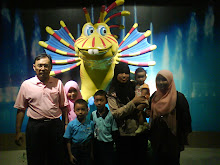COMPARATIVE RELIGION AND THE STUDY OF SACRED TEXTS IN THE DEPARTMENT OF ISLAMIC STUDIES:
TRENDS, PROSPECTS AND CHALLENGES
Dr. Haslina Ibrahim
TRENDS, PROSPECTS AND CHALLENGES
Dr. Haslina Ibrahim
RKUD, KIRKHS, IIUM
Comparative Religion as a branch of knowledge in Islam is believed to have its foundation as early as in the end of the 8th century in the form of theological debate between the Muslims and the Christians. The intellectual writings on Comparative Religion ensued though they were mostly confined to the scholastic method by adopting the language of apologetic and refutation. In addition to the scholastic method, study on sacred texts was conducted through learning of its language and understanding the history of its compilation and canonization. The allegedly ‘closing door of ijtihad’ however led to stagnation in the intellectual venture of the Muslim scholars. As a result, the Muslims developed a sense of being self-content and therefore became more prone to exclusiveness. Islamic studies were then confined to textual understanding of the Islamic traditions alone, whilst the understanding of other traditions was less prioritized. This explains why there are only a small number of faculties that offer Comparative Religion either as a subject or in a full-fledged department in Islamic University. Fortunately, towards the end of the 20th Century, there were sporadic and individual attempts to revive Comparative Religion and the question of its methodology was posed. This paper therefore seeks to examine the past trends, the challenges and the prospects of studying sacred texts of religions at the department of Islamic studies. Should the study of sacred texts be a necessary component in Islamic studies? What could be the feasible method? How would the Muslim scholars deal with question of authenticity of sacred texts that may hamper the understanding of particular religions? On top of these questions, the paper seeks to justify that the study of sacred texts would enhance inter-faith relations.
Comparative Religion as a branch of knowledge in Islam is believed to have its foundation as early as in the end of the 8th century in the form of theological debate between the Muslims and the Christians. The intellectual writings on Comparative Religion ensued though they were mostly confined to the scholastic method by adopting the language of apologetic and refutation. In addition to the scholastic method, study on sacred texts was conducted through learning of its language and understanding the history of its compilation and canonization. The allegedly ‘closing door of ijtihad’ however led to stagnation in the intellectual venture of the Muslim scholars. As a result, the Muslims developed a sense of being self-content and therefore became more prone to exclusiveness. Islamic studies were then confined to textual understanding of the Islamic traditions alone, whilst the understanding of other traditions was less prioritized. This explains why there are only a small number of faculties that offer Comparative Religion either as a subject or in a full-fledged department in Islamic University. Fortunately, towards the end of the 20th Century, there were sporadic and individual attempts to revive Comparative Religion and the question of its methodology was posed. This paper therefore seeks to examine the past trends, the challenges and the prospects of studying sacred texts of religions at the department of Islamic studies. Should the study of sacred texts be a necessary component in Islamic studies? What could be the feasible method? How would the Muslim scholars deal with question of authenticity of sacred texts that may hamper the understanding of particular religions? On top of these questions, the paper seeks to justify that the study of sacred texts would enhance inter-faith relations.

No comments:
Post a Comment